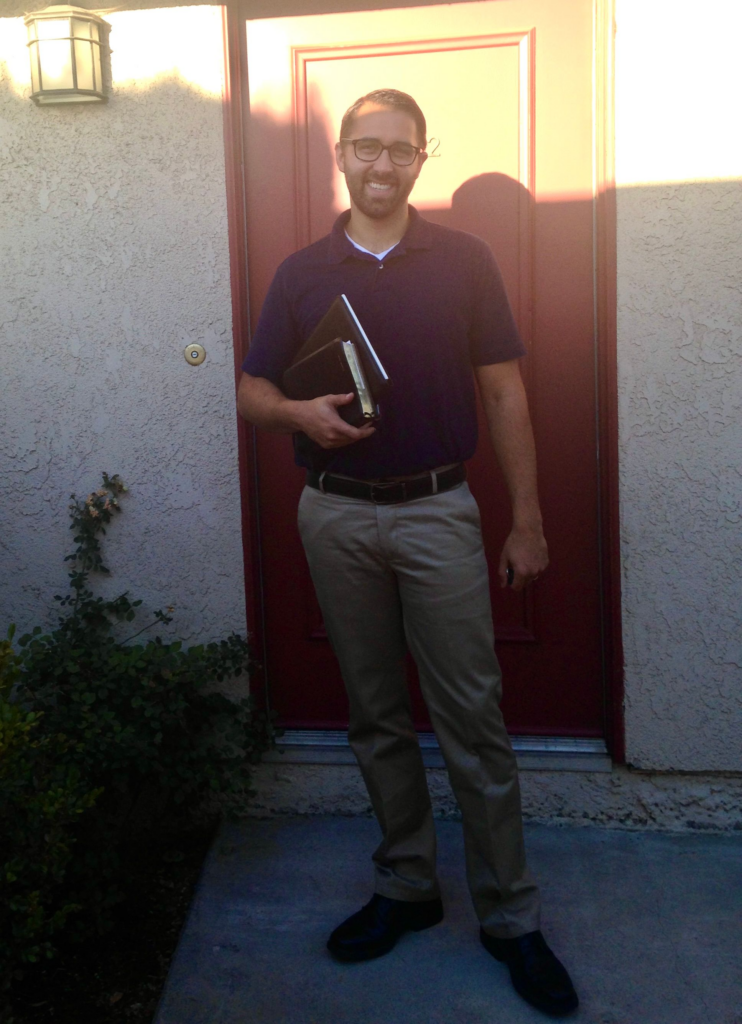Eight years ago today I had my first class at The Master’s Seminary. Even though I was nearly 30, my wife insisted on taking a first day of school picture, “like parents do with their preschoolers!”
That is why this goofy picture showed up in my Apple Photos memories this morning.

Moving across the country for school was a significant life experience. It altered the direction of my life considerably (we spent 7 years in California and I got to work side-by-side with some of my spiritual heroes).
But it sure doesn’t feel like it started nearly a decade ago.
It’s funny how when we look back on significant moments in our lives they all kind of compress together. Graduations, marriages, births, vacations—they can seem so recent in our memories until we start doing the math. That was 20 years ago!? The next thought follows inexorably:
Life is short.
And thinking about how short life our lives are can leave us feeling pretty insignificant.
Cosmic Insignificance Therapy
In his book, Four Thousand Weeks, Oliver Burkeman actually encourages readers to purposely embrace that sense of meaningless. Referring to Richard Holloway’s term for it, “cosmic insignificance therapy,” a process of taking solace in the fact that compared to eternity and the size of the universe your little life with all its problems and anxieties is “indistinguishable from nothing at all.”
Now, call me crazy, but I don’t find a whole lot of comfort in meaninglessness.
It is certainly true that our lives are barely a blip on the radar, especially when compared to the God for whom a thousand years “are but as yesterday when it is past.” (Psalm 90:4). Indeed the Scriptures call our lives but a vapor (James 4:14).
So it can be easy to start thinking that the brevity of life makes our time here, and particularly our work here, unimportant. Even futile. Why build, make, and toil if it’s all to be washed away by the sands of time anyway? This was Solomon’s vexation in Ecclesiastes. If I’m going to die anyway, what’s the point of all this hard work?
It’s all a little depressing, frankly.
Eternal Significance
Well, I’ve been preparing a sermon on Psalm 90 this week and one thing that struck me was how much the topic of work features in this great song of Moses. This is the Psalm with that memorable verse, “So teach us to number our days that we may get a heart of wisdom” (12). That verse comes after Moses had reflected on the eternality of God and the comparable brevity of man’s life in this world.
But Moses doesn’t treat the shortness of our lives as a reason to consider our work pointless. Far from it.
What’s really interesting about this Psalm is that it ends with this final plea “Let the favor of the Lord our God be upon us, and establish the work of our hands upon us; yes, establish the work of our hands!” For Moses, the aim of considering the brevity of life isn’t hopelessness, but a proper outlook—an eternal perspective. And this perspective shapes how we live and work today.
Most of what we do in this life will not stand the test of time, the buildings will crumble, the spreadsheets will be deleted, and the laundry will get dirty again. But work done in faith, for the glory of God is as durable as gold, silver, and precious stones. It will last forever, even beyond whatever temporal result it generated.
Work done as worship isn’t futile, it’s invincible.
And that should give us hope. The seemingly insignificant things you do today matter eternally if done in faith.
So here’s the question: Are you working for the glory of God today?
Are you praying that God would establish the work of your hands, that you might “bear fruit and that your fruit should abide” (John 15:16)?
Call it cosmic significance therapy.

